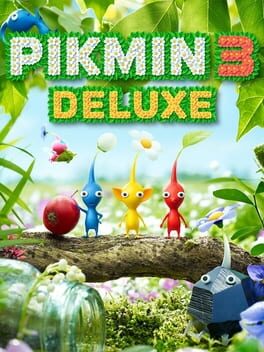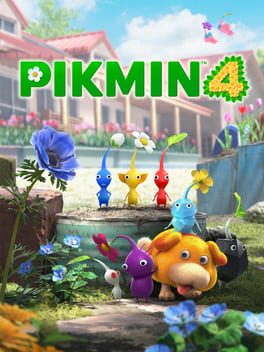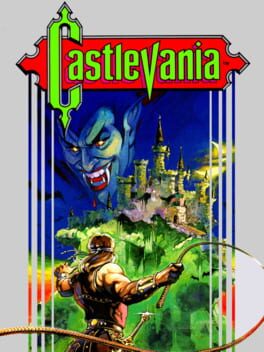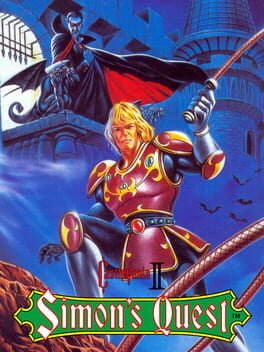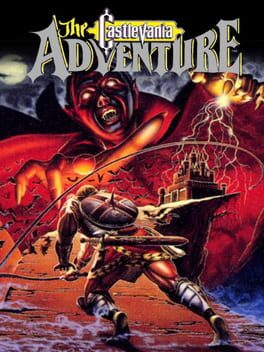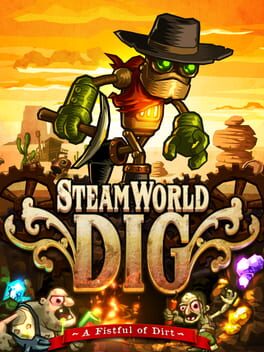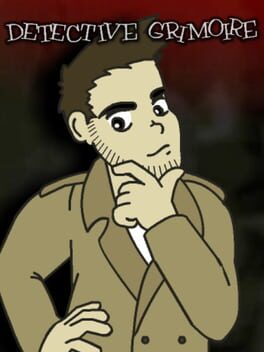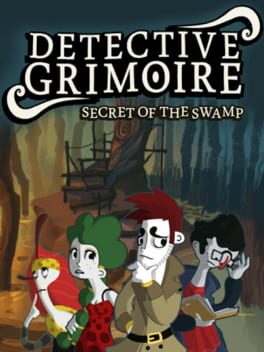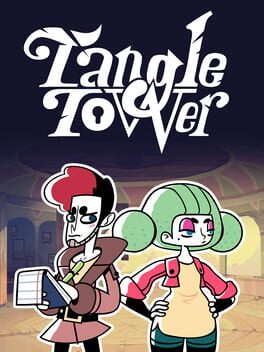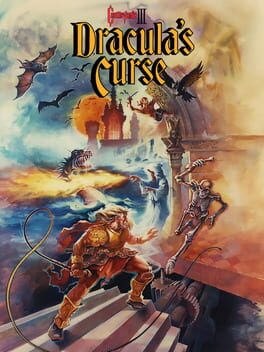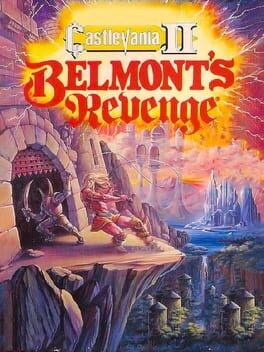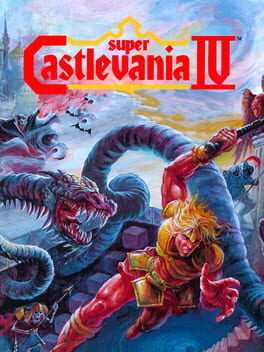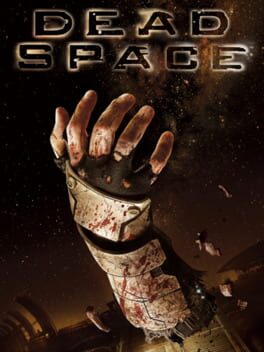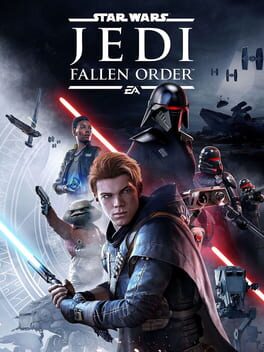Gerborious
2020
I remember this one being better?
Pikmin 3 still has a lot of things that I really enjoy. For one, I love the rock Pikmin, an absolutely stupid design that I can't help but adore. Also, the design has fully focused on one of the halves from Pikmin 2. Pikmin 3 is completely about expanding upon the surface gameplay from 2, but now you have access to 3 captains.
There are a few things holding this back. Firstly, the game is oppressively linear. Progression in Pikmin 3 is made through reaching an area's boss which happens the same way every time you play the game. Secondly, Pikmin 3 is near frictionless. The game is extremely easy, in no small part due to the new lock on that the Switch version has added to the game's detriment.
That leads me to my core thesis. In Pikmin 3, good time management is no longer a necessity, it's an ideal. A player can play Pikmin 3 at a relaxed pace due to the pseudo day limit, or one can attempt to collect all the fruits in the shortest time possible. This isn't a bad thing! Sometimes a series changes it's target audience, and I'm glad that this eventually paid off.
Pikmin 3 still has a lot of things that I really enjoy. For one, I love the rock Pikmin, an absolutely stupid design that I can't help but adore. Also, the design has fully focused on one of the halves from Pikmin 2. Pikmin 3 is completely about expanding upon the surface gameplay from 2, but now you have access to 3 captains.
There are a few things holding this back. Firstly, the game is oppressively linear. Progression in Pikmin 3 is made through reaching an area's boss which happens the same way every time you play the game. Secondly, Pikmin 3 is near frictionless. The game is extremely easy, in no small part due to the new lock on that the Switch version has added to the game's detriment.
That leads me to my core thesis. In Pikmin 3, good time management is no longer a necessity, it's an ideal. A player can play Pikmin 3 at a relaxed pace due to the pseudo day limit, or one can attempt to collect all the fruits in the shortest time possible. This isn't a bad thing! Sometimes a series changes it's target audience, and I'm glad that this eventually paid off.
2023
Pikmin 4 has successfully achieved mass appeal. It's the most successful Pikmin game by far, and I'm glad that this series is finally getting the recognition it deserves! It just isn't the series I fell in love with anymore, so to speak.
Sorry for being dramatic, but I'm just being honest. Even though I did enjoy my time with Pikmin 4, almost none of it has stuck with me post credits. We've gone full 3D collectathon, a long 30 hour string of small dopamine hits and fun references. Once that dopamine made its way out of my system, I haven't given it much thought.
Sorry for being dramatic, but I'm just being honest. Even though I did enjoy my time with Pikmin 4, almost none of it has stuck with me post credits. We've gone full 3D collectathon, a long 30 hour string of small dopamine hits and fun references. Once that dopamine made its way out of my system, I haven't given it much thought.
1986
Castlevania is a stone cold classic. While simple in comparison to it's successors, this first entry has come out fully formed in the series' main appeal.
The game peaks in stage 6, especially in the hallway before the Death fight. The combination of medusa heads and axe knights creates an incredibly dynamic encounter that was always engaging to fight through.
The game peaks in stage 6, especially in the hallway before the Death fight. The combination of medusa heads and axe knights creates an incredibly dynamic encounter that was always engaging to fight through.
If I'm being honest, Simon's Quest isn't that bad. There are really only two major moments where I had to look up a guide, which was surprising. Unsurprisingly, both moments were caused due to the game's poor translation. There was no way for me to know that the holy water broke certain blocks, or that crouching activated the magic crystals. Once I know that those were two elements of the game, I was able to intuit when and where to use them, which is proof to me that Castlevania II isn't as bad as it's made out to be.
In concept, Castlevania: The Adventure is really remarkable. This early gameboy adaptation explores mechanics that continue to be taken for granted in the console releases, and has the most interesting level design in the series up to that point. One problem though, the game is broken.
I really love the whip concept here. I've always felt that the whip powering up in Castlevania seemed like an afterthought. You're never left with a depowered whip for more than a few seconds, and since there is no way to lose it, why shouldn't the player simply spawn with the full power whip? The Adventure answers this, by making the whip's individual stages each feel remarkably different, and making losing your power an active threat.
The stages are also really cool. Each comes with a full suite of elements that make them feel distinct. A specific highlight is stage 3, with it's focus on crushing spike traps.
Sadly, all of these interesting ideas are functionally worthless in the face of The Adventure's performance. The game is in near constant slowdown. This leads to inputs being constantly dropped by the game. With The Adventure having the slowest Belmont so far, this directly caused me to die many times. It's a shame, really.
I really love the whip concept here. I've always felt that the whip powering up in Castlevania seemed like an afterthought. You're never left with a depowered whip for more than a few seconds, and since there is no way to lose it, why shouldn't the player simply spawn with the full power whip? The Adventure answers this, by making the whip's individual stages each feel remarkably different, and making losing your power an active threat.
The stages are also really cool. Each comes with a full suite of elements that make them feel distinct. A specific highlight is stage 3, with it's focus on crushing spike traps.
Sadly, all of these interesting ideas are functionally worthless in the face of The Adventure's performance. The game is in near constant slowdown. This leads to inputs being constantly dropped by the game. With The Adventure having the slowest Belmont so far, this directly caused me to die many times. It's a shame, really.
2013
I'm pretty confident that SteamWorld Dig is one of the first indie games I ever played. If my memory is correct, the first was Cave Story, and I'm pretty sure that SteamWorld Dig is within the first ones I got on my 3ds. Point being, I wanted to return to the game for a little bit of a nostalgia trip.
Luckily, I think this holds up really well! It sits at the intersection of Dig Dug, Mr. Driller, Terraria, and a little bit of Metroid. I think most people would accept the first three influences, but there may be some debate on whether or not this qualifies as a search action game.
I really love the main gameplay loop of mining. The restrictions on your capabilities, namely how you cannot dig across a layer above you brings a lot of thought to each movement you make. As the game progresses, and unique obstacles are added, the game only becomes more dynamic. The various caves, while less interesting in my opinion, help punctuate the gameplay. The upgrades you collect across the game also do a good job at expanding your possibility space.
Ultimately Steamworld Dig does a great job at applying an arcade style gameplay loop into a short but featured campaign.
Luckily, I think this holds up really well! It sits at the intersection of Dig Dug, Mr. Driller, Terraria, and a little bit of Metroid. I think most people would accept the first three influences, but there may be some debate on whether or not this qualifies as a search action game.
I really love the main gameplay loop of mining. The restrictions on your capabilities, namely how you cannot dig across a layer above you brings a lot of thought to each movement you make. As the game progresses, and unique obstacles are added, the game only becomes more dynamic. The various caves, while less interesting in my opinion, help punctuate the gameplay. The upgrades you collect across the game also do a good job at expanding your possibility space.
Ultimately Steamworld Dig does a great job at applying an arcade style gameplay loop into a short but featured campaign.
2007
I actually didn't realize that Detective Grimoire: Secret of the Swamp was a sequel to an original flash game. Luckily, I already had flashpoint installed, so I figured that checking out the original likely wouldn't be a waste of time.
Yeah, this is definitely a flash game alright. Animations include a lot of obvious tweening, the voice over has a couple of Newground's elites, and the gameplay is very simple. Honestly, for the time and environment that it was made in, I think it works rather well.
Yeah, this is definitely a flash game alright. Animations include a lot of obvious tweening, the voice over has a couple of Newground's elites, and the gameplay is very simple. Honestly, for the time and environment that it was made in, I think it works rather well.
This game has been languishing in my steam wishlist for as long as I've even had an account. I decided to do it a favor and give it, it's sequel, and as I would learn later it's prequel a shot.
It's clear that this game's primary platform is mobile. The game's ui is made large and with easily accessible buttons. One of the primary methods of interaction are what I call interface puzzles, where the game will ask the player to brush away some reeds, or sort through the trash by dragging and tapping.
I think the draw to this game is it's presentation and writing. The art is well done, and the entire game is voice acted. Both aren't entirely polished, there are some rough edges left behind, but not nearly enough to sour the experience. The game is amusingly written as well, it got a few chuckles out of me.
The big question then is whether the mystery is worthwhile. I would personally say that while the mystery was fairly simple, there were enough background details and a twist or two that made it fun to go for the ride.
It's clear that this game's primary platform is mobile. The game's ui is made large and with easily accessible buttons. One of the primary methods of interaction are what I call interface puzzles, where the game will ask the player to brush away some reeds, or sort through the trash by dragging and tapping.
I think the draw to this game is it's presentation and writing. The art is well done, and the entire game is voice acted. Both aren't entirely polished, there are some rough edges left behind, but not nearly enough to sour the experience. The game is amusingly written as well, it got a few chuckles out of me.
The big question then is whether the mystery is worthwhile. I would personally say that while the mystery was fairly simple, there were enough background details and a twist or two that made it fun to go for the ride.
2019
What I think I'll remember most about the Detective Grimoire trilogy is how each game acts as a benchmark for it's time period in independent development. The first game is a clear flash title, the second evokes the mobile game boom and early digital storefronts, while Tangle Tower feels like one of the high quality passion projects releasing today.
The art, animation, writing, music, and voice acting are all excellent. Truly top of their class. The simple interfaces of Secret of the Swamp have been replaced with full puzzles. The mystery is a good deal more involved in my opinion. If there's another game in this series currently in development, I'll be there day one.
The art, animation, writing, music, and voice acting are all excellent. Truly top of their class. The simple interfaces of Secret of the Swamp have been replaced with full puzzles. The mystery is a good deal more involved in my opinion. If there's another game in this series currently in development, I'll be there day one.
Personally, I prefer my search action to be more on the Metroid side. Less rpg elements and repeat enemy hallways, with more dynamic movement options. Turns out though, the game that popularized rpg elements and a slower pace is actually really good.
Symphony of the Night is a triumph in many ways. The feel of controlling Alucard is unreal, impossibly tight yet graceful. It achieves the rare status of being a game that just feels fun to control in itself. You could place Alucard in a grey box room with one respawning enemy, and I'd still have a great time practicing back dashing into speedy melee hits.
The world design is also to be admired. I think that many contemporary search action games make the mistake of having their worlds be too convenient. Things connect together in perfect ways, and the ideal route is always conveyed clearly yet subtly. I say screw that! Castlevania is willing to let the player get lost, truly lost without guidance, diegetic or otherwise. Making a world like this truly memorable lies in utilizing the negative space. The time when the player needs to walk to or from a warp point, or finding their way to a deserted dead end on the far side of the map.
The inverted castle is an excellent end game victory lap. It is entirely repeated content, but flipping it on it's head changes how you interact in a fundamental way. Truly a triumph.
Symphony of the Night is a triumph in many ways. The feel of controlling Alucard is unreal, impossibly tight yet graceful. It achieves the rare status of being a game that just feels fun to control in itself. You could place Alucard in a grey box room with one respawning enemy, and I'd still have a great time practicing back dashing into speedy melee hits.
The world design is also to be admired. I think that many contemporary search action games make the mistake of having their worlds be too convenient. Things connect together in perfect ways, and the ideal route is always conveyed clearly yet subtly. I say screw that! Castlevania is willing to let the player get lost, truly lost without guidance, diegetic or otherwise. Making a world like this truly memorable lies in utilizing the negative space. The time when the player needs to walk to or from a warp point, or finding their way to a deserted dead end on the far side of the map.
The inverted castle is an excellent end game victory lap. It is entirely repeated content, but flipping it on it's head changes how you interact in a fundamental way. Truly a triumph.
It's real good. Dracula's Curse iterates upon the original's foundation, creating a strong set of stages that I ended up enjoying more.
I think the multiple routes and characters are a neat concept, though I would argue that Dracula's Curse is too long. A playthrough feels like it lasts a good deal longer than the original, so I feel less inclined to go for more efficient runs despite the extra content.
I think the multiple routes and characters are a neat concept, though I would argue that Dracula's Curse is too long. A playthrough feels like it lasts a good deal longer than the original, so I feel less inclined to go for more efficient runs despite the extra content.
Talk about massive improvement. Turns out that making your game playable is a good idea? Crazy!
Belmont's Revenge isn't as good as the original or Dracula's Curse, but it's a really solid adaptation to the smaller console. The design is creative, and carries forward what made The Adventure unique. It just focuses those ideas, and makes them fit better within the Castlevania framework.
Belmont's Revenge isn't as good as the original or Dracula's Curse, but it's a really solid adaptation to the smaller console. The design is creative, and carries forward what made The Adventure unique. It just focuses those ideas, and makes them fit better within the Castlevania framework.
1991
I'm gonna be honest and say that I feel really biased on this one. I was just constantly frustrated while playing. I don't know exactly why? It may have just been a long week.
In terms of design, Super Castlevania 4 is probably my least favorite of the main platformers. The whip is absurdly strong, and the massive sprites mean that the pace has been slowed down significantly. I found it to be a bummer honestly.
In terms of design, Super Castlevania 4 is probably my least favorite of the main platformers. The whip is absurdly strong, and the massive sprites mean that the pace has been slowed down significantly. I found it to be a bummer honestly.
2008
Everybody loves Resident Evil 4. I do, you do, Capcom does, and so does Dead Space. Luckily, I love Dead Space as well.
This game rips hard, both figuratively and literally. The atmosphere is dense and oppressive, and the gameplay is fierce and engaging. I wasn't in love with the plot but that's fine in my book.
The focus on dismemberment helps Dead Space to feel entirely unique among other shooters. I really enjoy stasis and kinesis as well. Just a rock solid time all around.
This game rips hard, both figuratively and literally. The atmosphere is dense and oppressive, and the gameplay is fierce and engaging. I wasn't in love with the plot but that's fine in my book.
The focus on dismemberment helps Dead Space to feel entirely unique among other shooters. I really enjoy stasis and kinesis as well. Just a rock solid time all around.
Consider this a palate cleanser, something to play in order to realign expectations going forward. I enjoyed the characters well enough, the combat well enough, the platforming well enough, et cetera et cetera.
Especially since I'm heading into a couple major series binges to close out my year, it was nice to refresh my mind before diving in. Game is pretty unchallenging as well, even though I was playing on the highest difficulty. I guess some games just click.
Don't really have much to say if I'm being honest. Don't really see how anyone could have much to say.
An off white wall. A saltine cracker. It's not bad, or even mediocre. I just likely won't be thinking about this one much in the future. You don't notice the neutral tones often anyways.
Especially since I'm heading into a couple major series binges to close out my year, it was nice to refresh my mind before diving in. Game is pretty unchallenging as well, even though I was playing on the highest difficulty. I guess some games just click.
Don't really have much to say if I'm being honest. Don't really see how anyone could have much to say.
An off white wall. A saltine cracker. It's not bad, or even mediocre. I just likely won't be thinking about this one much in the future. You don't notice the neutral tones often anyways.
